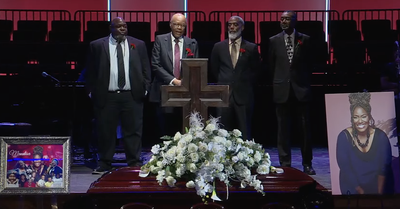March 27, 2009
Not all news from the Darfur region of Sudan is bad news, depending on your perspective. After the expulsion of 13 aid groups earlier this month, Christian relief organizations, such as Samaritan’s Purse, World Vision, and Make Way Partners, have been permitted to stay in the region and are attempting to fill the gap.
Following an arrest warrant issued by the International Criminal Court for Sudanese President Omar al-Bashir — perhaps in response to it — the Sudanese government expelled 13 of the largest international aid agencies, including Oxfam, CARE, and Medecins Sans Frontieres, as well as three domestic organizations.
This action has shocked some aid workers in Darfur, home to the world's biggest humanitarian operation. Others think some aid organizations were begging to be sent home because some endorsed the indictment of al-Bashir.
About 4.7 million people rely on food, medical or water aid in Darfur, including 2.7 million people displaced by fighting. Some news organizations have estimated that the expelled organizations carried out at least 50 percent of the work there.
“No one really knows why” certain aid organizations were expelled and others were allowed to stay, said Rachel Wolff, World Vision’s media contact for disaster response and breaking news.
Various news organizations have floated theories as to why al-Bashir, a Muslim, expelled secular aid groups but permitted Christian organizations to stay. Some aid organizations still operating in Darfur are hesitant to comment, although some speculate that the on-going dialogue between Samaritan’s Purse’s Franklin Graham and al-Bashir has kept his government friendly to Christian aid groups.
Kimberly Smith, president of child aid group Make Way Partners, guesses that in addition to al-Bashir’s resentment over his indictment, there might be additional reasons.
“Some [of the 13 expelled aid organizations] were doing good work. But before al-Bashir’s indictment, tension between the government and the aid organizations was already there. Organizations where Westerners run the show are the first to be kicked out,” she said.
Smith explained that there are two extremes in aid organizations’ modes of operation: One sends money and food with no oversight as to how the money is spent and how – or if – food and medicine is delivered to the needy. The other extreme says to the indigenous people, “You’re stupid. We’ll do the work.”
Smith and Make Way Partners believe a better way is to identify and train indigenous leaders, then send money and supplies while monitoring their administration.
“I think the reason we are still in Darfur has less to do with Franklin Graham’s connections with al-Bashir and more to do with the spirit of Christians,” said Smith. “Christians come in as humble servants, not necessarily to covert the people, but because the love of Christ compels us to relieve physical suffering, then perhaps eventually, their soul’s suffering.”
Smith does not worry about Make Way Partners being kicked out next. “The government knows we are not there for a power grab but helping in the name of Christ. We have not been threatened in any way.”
Nonetheless, because these 13 aid groups have been forced to leave the country, smaller aid groups can only do so much to fill the gap. As a result, more people are in danger of death by starvation, thirst, or disease.
But remaining organizations soldier on.
“Our programs were never interrupted,” said Wolff. “The needs in Darfur have remained. As a global community, we need to focus on Darfur. The desperation is very real and there are still ways to help. The fundamental situation that created this life-or-death crisis still exists.”
The four-year conflict between al-Bashir’s jihadist-backed militia (Janjaweed) in the north against the mostly-Christian people of the south has driven more than 2.7 million people into temporary camps, most with nothing but the clothing on their backs. More than 4 million have been killed.
Although Sudan signed a peace treaty in January 2005, the country is still in a state of turmoil. Prior to January, the Janjaweed bombed or burned schools, churches, homes, clinics and crops and poisoned wells. Up to 2 million women and children were enslaved. Thousands of those slaves are now being released but have no home to go to.
Here is where the remaining Christian aid organizations make a difference. Since June 2004, World Vision has provided humanitarian assistance to war-affected children and adults in Darfur. Make Way Partners has also been in Darfur about the same time, establishing long-term discipleship programs, clinics, schools, and orphanages.
Rebekah Montgomery, author/speaker/teacher, is a gifted, dynamic communicator. She is the author of more than five books and has penned 1,100 articles. She shares tough real-life topics and biblical application in a simple easy to grasp manner. To book Rebekah for your next event visit www.rebekahmontgomery.com. Rebekah is also the editor of Right to the Heart of Women and a publisher at Jubilant Press.










